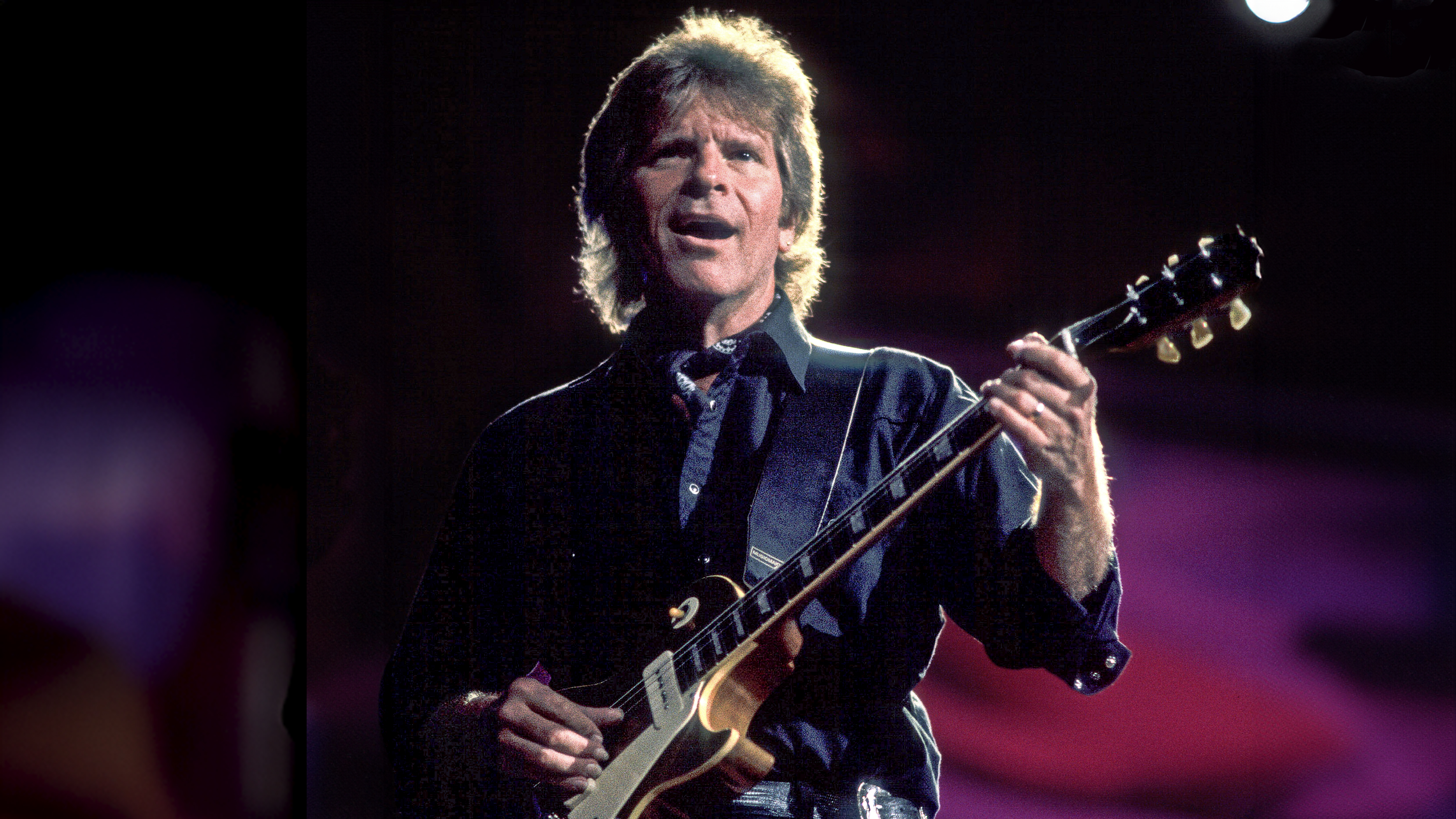“Somebody would tell me how they loved a song, and I’d kind of feel a little bit like a fool.” Creedence Clearwater Revival's John Fogerty on the victory that he says was “an instant esteem booster"
In a new interview with Stephen Colbert, the former Creedence Clearwater Revival hitmaker reveals the humiliation of losing the rights to his catalog

All the latest guitar news, interviews, lessons, reviews, deals and more, direct to your inbox!
You are now subscribed
Your newsletter sign-up was successful
John Fogerty says getting the rights back to his Creedence Clearwater Revival songs “changes everything” and explains the remarkable effect it had on his self-esteem,
“I think the first thing you might be surprised to know is, my self-esteem really changed, you know?” he tells Stephen Colbert in a new interview. “I put so much effort into creating those songs all those years ago. I really did that because I had to. It was life and death to me.”
As the leader of Creedence Clearwater Revival, Fogerty wrote some of rock music’s greatest hits between 1969 and 1970. As Colbert notes, those tunes included timeless tracks like “Proud Mary,” “Born the Bayou,” “Green River,” “Bad Moon Rising,” “Down on the Corner,” “Fortunate Son,” “Traveling Band,” “Looking Out My Back Door,” “Run Through the Jungle,” “Up Around the Bend,” “Who'll Stop the Rain, “Have You Ever Seen the Rain?”… and many more.
“That’s an explosion,” Colbert remarks. “That’s not just writing.”
And in 1980, he lost it all when he sold the rights to his songs to Fantasy Records, the label that released those Creedence Clearwater Revival hits, to get out of his contract.
Fogerty got his songs back in 2023 when he purchased a majority stake in the CCR catalog from Concord Records, which had assumed ownership following the sale of Fantasy. His victory, coming after 50 years of turbulence, granted him copyright to a total of 65 CCR songs.
“I worked really hard during that time,” he explains. “I mean, I was up, you know, most of the night writing and all that. I was driven. I was manic, you know? I wanted to get way up high. I refused to be mediocre.
All the latest guitar news, interviews, lessons, reviews, deals and more, direct to your inbox!
“And you know, you can do it if you really just keep trying, right?
“But I kind of got snookered out of the ownership.”
As a result, Fogerty says, for years he suffered the feeling that he was a fool who lost a fortune.
“I just felt kind of like a sap, a sucker, the guy that had given away the farm, you might say,” he continues. “Somebody would come up to me and tell me how they loved a song, that ‘Proud Mary’ is something, and I’d kind of feel a little bit like a fool.
“Getting them back, it was just like an instant esteem booster.”
A post shared by The Late Show (@colbertlateshow)
A photo posted by on
Fogerty also credited his wife, Julie, for making it happen. As he revealed in an earlier interview, it was through her work that he reclaimed the Fireglo Rickenbacker 325 semi-hollow that had been among his key electric guitars during those years. Getting his guitar back helped him heal and find the joy he needed to get back to making music.
Once he regained the rights to his catalog, Fogerty set about revisiting the tracks on his new album, Legacy — The Creedence Clearwater Revival Years. Because while he now owns the copyrights to his songs, he doesn’t own the original masters and likely never will.
“But another thing is, I think there’s a joy quite evident in the music that may not be there in the original versions,” he told Rolling Stone.
Besides, he says, “When you’re 80 years old, you finally are given the special key to the kingdom. I guess you can do whatever you want. I decided this is what I wanted to do — to give myself a present.”
Christopher Scapelliti is editor-in-chief of GuitarPlayer.com and the former editor of Guitar Player, the world’s longest-running guitar magazine, founded in 1967. In his extensive career, he has authored in-depth interviews with such guitarists as Pete Townshend, Slash, Billy Corgan, Jack White, Elvis Costello and Todd Rundgren, and audio professionals including Beatles engineers Geoff Emerick and Ken Scott. He is the co-author of Guitar Aficionado: The Collections: The Most Famous, Rare, and Valuable Guitars in the World, a founding editor of Guitar Aficionado magazine, and a former editor with Guitar World, Guitar for the Practicing Musician and Maximum Guitar. Apart from guitars, he maintains a collection of more than 30 vintage analog synthesizers.
